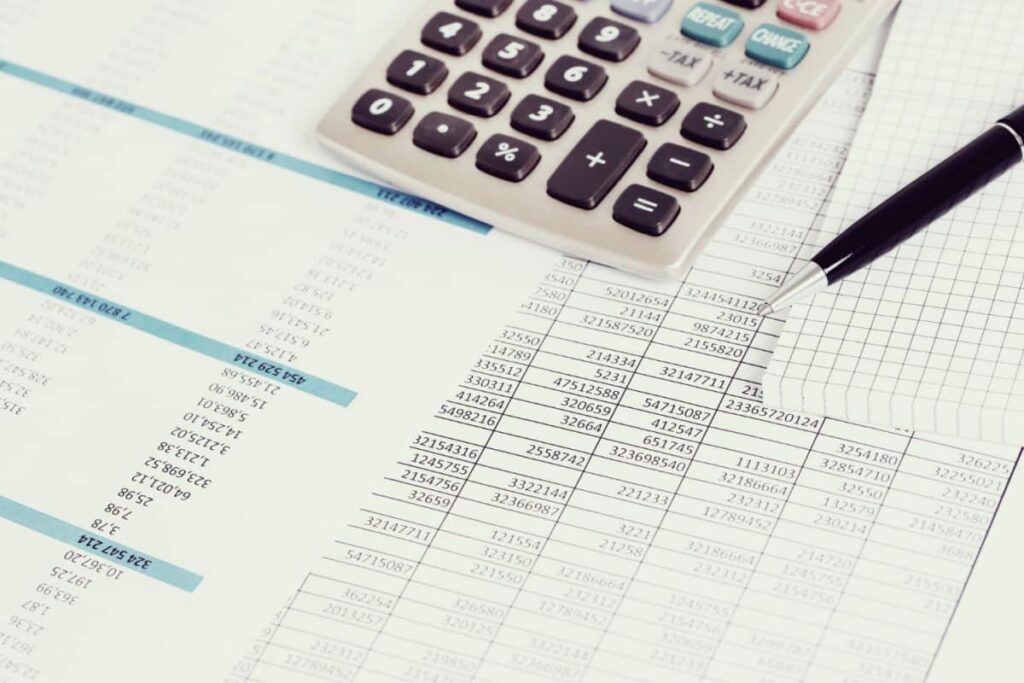Knowing how to maximise your investment property's financial benefits is vital as tax season approaches. This blog article explains how to optimise your Australian investment property tax return.
Understand Your Deductible Expenses
Australian investment property tax effectiveness depends on knowing what costs are deductible. Now for the details:
1. Exploring the World of Deductible Expenses
- Property Management and Maintenance: Your property manager's fees are deductible. This includes advertising, screening, and normal administration fees. Deductible maintenance and repair charges include replacing a leaking tap and painting. Repairs and improvements are taxed differently; therefore, it's vital to identify them.
- Loan Interest and Banking Charges: Investment loan interest is a major deduction. Any interest charged on the money borrowed to buy or improve your property is deductible. Remember to include any bank charges for your investment property loan in this deduction.
- Depreciation: A Hidden Gem: Property investors often ignore non-cash depreciation. It lets you deduct property and fixture wear and tear. A professional depreciation plan is recommended since the Australian Taxation Office (ATO) has special depreciation standards.
- Utilities and Services: Water, electricity, and council charges can be deducted while renting the property. If tenants pay these costs, they're not deductible.
- Insurance and Strata Fees: Insure building, contents, and public liability. Strata costs are deductible if your property is strata. Fees fund sophisticated common area upkeep and administration.
- Legal and Accounting Fees: Rental property legal fees like lease preparation and eviction actions are deductible. Similar accounting costs apply to property financial management.
2. Navigating the Nuances
Understanding these deductions' intricacies is key. Travel expenditures to view your property are no longer deductible starting July 2017. Initial repair expenditures and capital upgrades aren't deductible, but they may be depreciable or taxable capital gains when you sell.
It's crucial to stay current on tax laws and consult a tax professional for personalised assistance. Remember, good tax management may boost investment property profits.
Depreciation Schedules
Understanding depreciation schedules may improve Australian property investors' lives. You should know:
1. The Essence of Property Depreciation
- What is Depreciation?: Depreciation is the gradual loss of value of your property and fixtures. This reduction is tax-deductible, according to the ATO. It's like accepting that your property, like a car, wears out and has a worth.
- Two Types of Depreciations: Division 43 capital works deductions and Division 40 plant and equipment depreciation. Division 43 includes bricks and mortar, whereas Division 40 covers appliances, carpets, and blinds.
2. Getting a Depreciation Schedule
- Why You Need a Professional: A qualified quantity surveyor must prepare a depreciation schedule. They know how to value your property's wear and tear. If you do it wrong, you might lose thousands of dollars in deductions or get in trouble with the ATO.
- The Long-term Benefits: A properly prepared depreciation schedule can mean significant tax savings over the years. Even older properties, which seem fully depreciated, can offer deductions you may have overlooked.
3. Maximising Your Depreciation Benefits
- Immediate Write-Offs and Low-Value Pooling: Some things may qualify for rapid write-offs or low-value pooling, increasing early deductions. This method works well for newer or remodelled homes.
- Understanding the Changing Rules: Taxes and depreciation might fluctuate. Since May 2017, investors have only been able to depreciate new plants and equipment. Staying informed and getting competent guidance to optimise legal claims is crucial.
Australian property investors need depreciation schedules. More than tax savings, you want to maximise your investment's long-term return. So, pay attention to this crucial aspect of your property investment strategy.
Keep Accurate Records
Accurate records are a prime investment property rule. This isn't just about being organised—it's essential for property management and tax preparation. Here's how this affects Australian property investors.
First, consider record-keeping your investment property financial journal. Every transaction, big or small, should be recorded and filed. Total tenant income and costs include repairs, management fees, and interest. This diligent record-keeping is crucial. It helps track your property's financial performance and prepares you for the ATO examination.
The ATO can require income and cost proof five years after you claim them. Here, careful record-keeping pays dividends. Keep bank statements, receipts, bills, and rental records. This documentation can make an audit easier and less stressful.
Remember that these records are vital when selling the property. Capital gains tax computations require reliable cost and spending records throughout ownership, not just the year of sale. Use past year's important spending to save taxes.
Technology may save time while keeping records in the digital age. Many property investor tools and software can manage income and spending, save receipts digitally, and produce tax-ready reports.
Record-keeping pays off over time. Compliance isn't enough—you must understand your investment's financial health, prepare for taxes, and defend yourself against audits. Take time to create a system that works for you and keep to it. Your future self will appreciate it at tax time.
This record-keeping method keeps you on top of your finances and ready for tax requirements and audits and is essential for any smart Australian property investor.
Loan Structuring
How you structure your loan can maximise your investment property's tax benefits. In Australia, smart loan structuring means knowing how your loan structure affects your tax situation, not just getting the best interest rate.
Interest on your investment loan is important. Australian investors can deduct investment property loan interest. You can deduct your interest from your rental income, lowering your taxable income. It's important, especially if you pay more taxes.
Let's compare interest-only and principal-and-interest loans. Some property investors choose interest-only loans strategically. Interest-only repayments are lower because you're not paying off the principal. This means increased short-term deductible interest expenditures, which might be helpful if you expect your income to rise or plan to sell the property soon.
This must be balanced with long-term thinking. Interest-only loans don't develop equity through principal payments. If home values hold steady, this might hurt your finances.
Fixed or variable interest rates are another consideration. Budgeting benefits from fixed rates and constant payback amounts. Variable rates allow additional repayments without penalty, quicker principle reduction, and property equity growth.
Consider loan structuring if you own numerous homes. Separating loans for each property simplifies tax interest monitoring. Additionally, you own your house and investment property. It's usually more tax-effective to pay off your house loan before your investment loan.
In loan structuring, one size does not fit all. Every investor is different, so what works for one may not work for another. Australian property investing is complicated, so consult a financial expert or mortgage broker. Their loan structure may be tailored to your needs and financial goals to maximise your investment property tax return.
Negative Gearing

In Australian property investing, 'negative gearing' is common. Depending on your situation and investing plan, it might be a friend or an adversary.
Negative gearing occurs when property expenditures, such as loan interest, property management fees, and upkeep, exceed rent. This loss can be deducted from your pay or earnings to lower your taxable income. It can temporarily cut your tax bill.
Why would anyone choose a losing investment? The negative gearing technique is speculative. It's commonly utilised in hopes that the property's capital gain would balance these losses. You're betting on property market expansion to profit from your investment.
Any investing plan has hazards. Sometimes the property market booms; sometimes, it doesn't. Your financial condition may be better if your approach relies exclusively on capital growth, which may not happen.
You must also consider cash flow. Negative gearing makes you lose money quickly. You need financial stability to manage these losses if you have unanticipated bills or an empty home.
Additionally, tax policy and economic situations might alter. Too much reliance on present tax benefits might be problematic if they are changed or eliminated. Tax regulations change, and they may again.
Negative gearing may be a useful investing tool, but it's not a one-size-fits-all answer. You must examine your finances, investing goals, and market circumstances. Always consult a financial specialist. They can assist you in understanding negative gearing and matching your investing plan to your long-term financial goals. Effective Australian property investing frequently requires combining present rewards with future ambitions.
Capital Gains Tax Considerations
Australian property investing requires knowledge of capital gains tax (CGT). The tax you pay on property sales profits might dramatically affect your financial return.
Consider a real-life example. Imagine selling an investment property you bought years ago for more than you spent. The difference between what you purchased for the property (plus acquisition and holding fees) and what you sell it for is your capital gain. Yes, the taxman wants this gain.
It's more complicated than it seems. Australian Taxation Office (ATO) policies and concessions affect CGT payments. Property tenure is important. CGT capital gains are usually discounted by 50% if you've owned the property for over 12 months. This major tax reduction might be half your liability.
What if the property was your home before investing? Now things become intriguing. The 'six-year rule' is an ATO concession. If you rent out your home, you can still claim it as your principal residence for CGT purposes for six years if you don't claim another property. This can exclude property sales from CGT, although limitations exist.
For instance, inherited property. Different regulations apply to inheriting property based on when the dead acquired it and other considerations. Understanding CGT on inherited properties is complicated, thus expert counsel is essential.
Have you done property improvements? Adding a room or upgrading a kitchen might lower your property's cost base and capital gain.
Australian capital gains tax is detail-oriented. When you acquired the property, how long you've owned it, what you've done to it, and how you've utilised it might affect your CGT liability. Always keep thorough documents and consult a tax specialist. They can assist you in negotiating CGT's intricacies and arrange property transfers with customised advice. Remember that property investment tax responsibilities are as crucial as market knowledge.
Conclusion
Knowledge and planning are your best allies as we conclude our tour of getting the most out of your investment property at tax time in Australia. Optimising your tax situation requires understanding deductible costs, loan structure, negative gearing, and capital gains tax.
Successful property investment requires more than the appropriate buyer or renter. Strategic money management—especially tax time—is also important. Keeping correct records, remaining current on tax regulations, and engaging with specialists may make tax time positive.
Australian investment property ownership has distinct opportunities and problems. The opportunity for capital development, rental income, and tax benefits makes it appealing. However, it is complicated. Tax rules and market conditions change continuously in property investing. Being flexible, educated, and proactive is crucial.
More importantly, don't do it alone. Professional counsel is invaluable. A property investment-savvy accountant, financial counsellor, or tax specialist is invaluable. They offer tailored guidance, keep you abreast of legal changes, and assist you in negotiating the tax system.
Lastly, an investment property may be more than simply a physical asset. Wealth creation and financial stability may be achieved with the correct mentality. Prepare for tax season by reviewing, planning, and strategising. You may leverage the benefits of your investment property and reach your financial objectives with careful preparation and experienced help.
Content Summary
- This blog article provides a comprehensive guide on maximising the financial benefits of investment property in Australia during tax season.
- It emphasises the importance of understanding deductible expenses, such as property management and maintenance, loan interest and banking charges, depreciation, utilities and services, insurance and strata fees, and legal and accounting fees.
- Understanding these deductions is crucial, as they allow property and fixture wear and tear to be deducted.
- A professional depreciation plan is recommended due to the Australian Taxation Office's (ATO) special depreciation standards.
- Additionally, utilities and services, such as water, electricity, and council charges, can be deducted while renting the property.
- Insurance and strata fees are also deductible if the property is strata, covering building, contents, and public liability.
- The article also discusses the nuances of these deductions, such as travel expenditures to view the property as no longer deductible starting July 2017.
- It advises staying current on tax laws and consulting a tax professional for personalised assistance.
- Good tax management can boost investment property profits.
- Depreciation schedules are another important aspect of understanding for Australian property investors.
- They explain the gradual loss of value of property and fixtures, which is tax-deductible according to the ATO.
- There are two types of depreciation: Division 43 capital works deductions and Division 40 plant and equipment depreciation.
- A qualified quantity surveyor must be hired to get a depreciation schedule, as they know how to value your property's wear and tear.
- A properly prepared depreciation schedule can lead to significant tax savings over the years, even for older properties that may seem fully depreciated.
- Maximising depreciation benefits is also essential, as some things may qualify for rapid write-offs or low-value pooling, increasing early deductions.
- However, it is important to understand the changing rules of taxes and depreciation, as they may fluctuate.
- In addition to record-keeping, property investors should consider keeping accurate records for property management and tax preparation.
- This includes recording total tenant income and costs, bank statements, receipts, bills, and rental records.
- Technology can also help save time by managing income and spending, saving receipts digitally, and producing tax-ready reports.
- Overall, this record-keeping method is essential for any smart Australian property investor, helping them stay on top of their finances and ready for tax requirements and audits.
- Loan structuring is a crucial aspect of Australian property investing, as it can maximise the tax benefits of your investment property.
- Smart loan structuring involves understanding how your loan structure affects your tax situation, not just getting the best interest rate.
- Interest on your investment loan is important, as it allows you to deduct interest from your rental income, lowering your taxable income.
- Interest-only loans are strategic, as they allow for increased short-term deductible interest expenditures, which may be helpful if you expect your income to rise or plan to sell the property soon.
- Fixed or variable interest rates are another consideration, as they allow additional repayments without penalty, quicker principle reduction, and property equity growth.
- Separating loans for each property simplifies tax interest monitoring and is usually more tax-effective to pay off your house loan before your investment loan.
- In Australian property investing, 'negative gearing' is common, and it can be a friend or an adversary, depending on your situation and investing plan.
- Negative gearing occurs when property expenditures, such as loan interest, property management fees, and upkeep, exceed rent, which can be deducted from your pay or earnings to lower your taxable income.
- This loss can temporarily cut your tax bill.
- Negative gearing is speculative and is commonly used in hopes that the property's capital gain would balance these losses.
- However, any investing plan has risks, and your financial condition may be better if your approach relies exclusively on capital growth, which may not happen.
- Cash flow is also a concern, as negative gearing can make you lose money quickly, and financial stability is needed to manage these losses.
- Capital gains tax (CGT) is another important consideration in Australian property investing.
- The tax you pay on property sales profits might dramatically affect your financial return.
- Property tenure is important, and CGT capital gains are usually discounted by 50% if you've owned the property for over 12 months.
- The 'six-year rule' is an ATO concession, allowing you to claim your property as your principal residence for CGT purposes for six years if you don't claim another property.
- Australian capital gains tax is detail-oriented, and understanding CGT on inherited properties is complex.
- Expert counsel is essential for understanding CGT on inherited properties.
- Additionally, property improvements can lower your property's cost base and capital gain. Australian capital gains tax is detail-oriented, and it is essential to keep thorough documents and consult a tax specialist to negotiate CGT's intricacies and arrange property transfers with customised advice.
- In conclusion, knowledge and planning are the best allies in getting the most out of your investment property at tax time in Australia.
- Strategic money management, especially tax time, is also important, and being flexible, educated, and proactive is crucial.
- Professional counsel is invaluable, as they offer tailored guidance, stay updated on legal changes, and assist in negotiating the tax system.
Frequently Asked Questions
Australian property investors have several tax deductions. These include loan interest, property management and maintenance charges, depreciation, council rates, insurance premiums, and property management legal fees. Remember to retain receipts and documents to support these claims.
Negative gearing happens when investment property maintenance expenses exceed revenue. This loss can be deducted from your wage in Australia to lower your taxable income. It should be done prudently and in line with your long-term investing goals.
Improvements are usually delayed deductible. These expenditures are normally depreciated over several years or added to the property's cost base, reducing capital gains tax when you sell. Enhancements should be distinguished from repairs and maintenance (often immediately deductible).
Keep purchase and sale documentation, rental agreements, spending receipts, loan documents, and insurance records for your investment property. For correct deduction and capital gains tax calculations, these documents must be preserved for at least five years after the tax return is filed.
The profit from selling your home is subject to CGT. In Australia, a 50% capital gain reduction is normally given to property owners who have owned it for over 12 months. Your CGT amount depends on your income, the selling price, and the property's cost base, which includes the purchase price and any major expenses.















